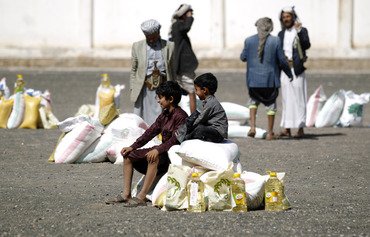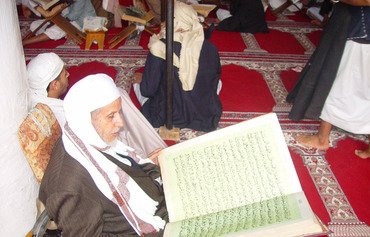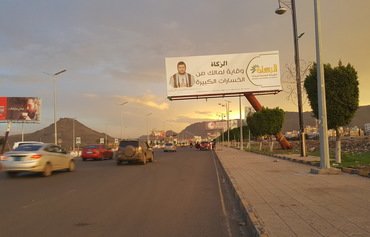As the financial blockade tightens around the "Islamic State of Iraq and the Levant" (ISIL), cutting off its oil smuggling routes and severing its sources of funding, the group is imposing new fees on residents to offset its losses.
In early May, ISIL distributed a "zakat collection form" to farmers in the Syrian province of al-Raqa, local residents said, a move clerics describe as "outright theft" as it does not adhere to the rules of zakat as stipulated by sharia.
Al-Raqa resident Essam Othman, who asked to use a pseudonym out of concern for his safety, told Al-Shorfa he had seen a copy of the form, distributed by the Zakat and Charity Centre of Bayt al-Mal, ISIL’s "Ministry of Finance".
The form sets out the levies to be paid on agricultural lands cultivated with cereals such as wheat and barley, vegetables and fruits, and livestock such as camels, cows, sheep and goats, he said.
Another section is devoted to the fees to be paid on gold, silver, cash and commercial stocks, or inventories of goods held by merchants, he said.
Unauthorised collection of zakat
ISIL began its unauthorised collection of zakat when it seized control of the region, Othman said, but it is being more stringent with collection this year in light of intensified airstrikes and its resulting loss of funding sources.
The group has been collecting zakat from all farmers, even those who cultivate small plots whose crop yields are barely enough to feed their families, he said.
"It is known, for example, that zakat is imposed only on those who own more than 40 head of cattle," he said. "But the group imposes it on everyone, regardless of the number of cattle they own."
Also, the zakat on crops has been set at 10% of the harvest (higher than the mandated amount), he said.
The zakat imposed by ISIL also includes those who own agricultural machinery used for harvesting and fruit picking, said al-Raqa merchant Ali Saeed, who asked to use a pseudonym.
"Those people had already paid taxes to the group, and here they are paying once again at harvest time," he told Al-Shorfa.
In addition to collecting money from them, he added, ISIL also seeks to control their work hours and their access to the fuel they need to operate their machinery, for which it charges astronomical prices.
ISIL elements collect zakat on crops in the form of produce, then sell them at higher prices to increase their profit margin, he said.
Farmers are prohibited from harvesting their crops before obtaining the necessary paperwork documenting the payment of zakat, Saeed added.
ISIL contravenes sharia
ISIL imposes zakat on all livestock owned by farmers, regardless of the method of raising them or their number, said Sheikh Moaz Abdul Karim, a former preacher at al-Omar mosque in Aleppo city who now resides in Cairo.
This is a "fundamental violation" of sharia and its provisions on the collection of zakat, he told Al-Shorfa.
Zakat is not due for livestock that must forage for its food for a period of five months or more, he said, and is only due on a certain number of livestock, specifically more than 30 cows, 40 sheep or five camels.
Furthermore, he explained, working livestock, such as animals used for plowing, are exempt from zakat.
"ISIL’s practices are nothing more than a form of tribute payment that citizens are burdened with amid the war Syria is going through," he said.
Farmers in Syria are suffering from ISIL's excesses, as their crops are barely enough for their own consumption, he added, noting that the majority of families store supplies for year-round consumption during the harvest season.
"The underlying concept of zakat is to re-distribute money to the poor, widows and orphans, while the terrorist ISIL group uses the money to buy weapons and pay the salaries of its militants," he said.
"The imposition of zakat in times of war and widespread poverty is subject to rules that, for example, exempt farmers and the poor from paying it to help them get through the hard times they are experiencing," he added.
Zakat payment is based on discretionary income as a form of social solidarity, and not to make the poor poorer, Abdul Karim said.

![A Syrian farmer harvests his crop in al-Raqa. [Photo courtesy of Mohammed al-Abdullah]](/cnmi_am/images/2016/06/09/5529-Syria-raqa-farmer-600_384.jpg)






